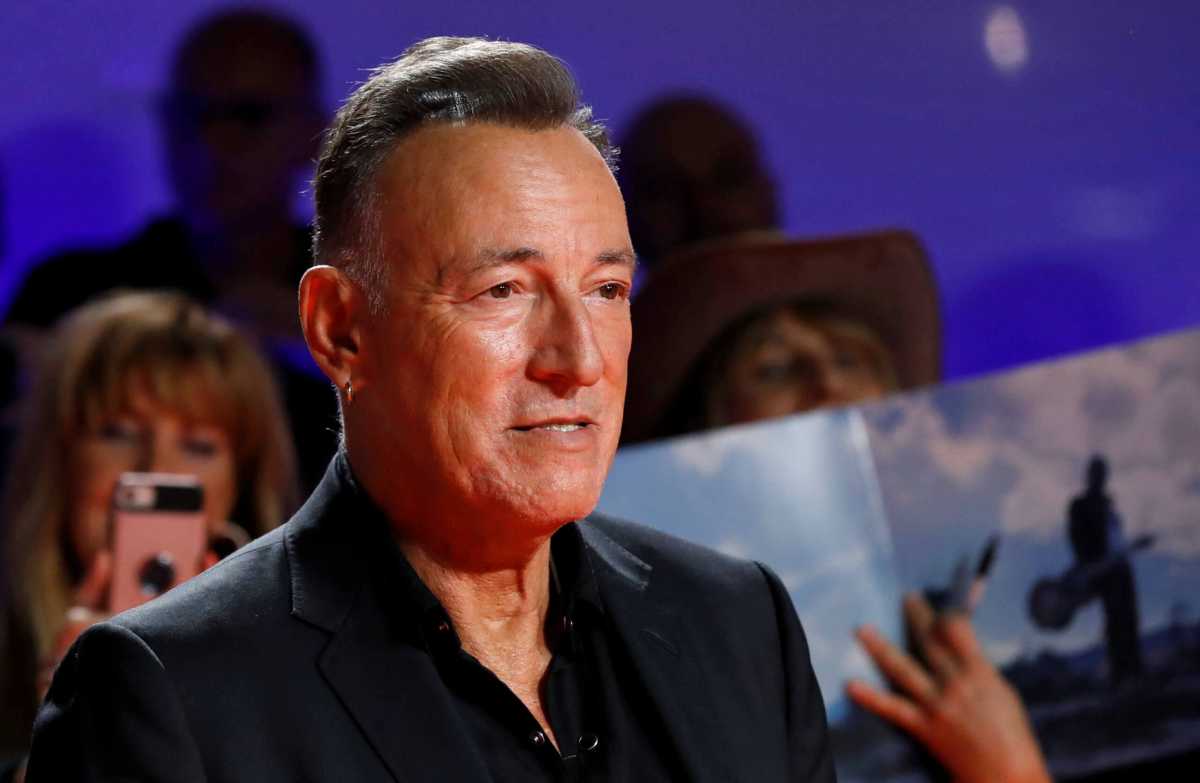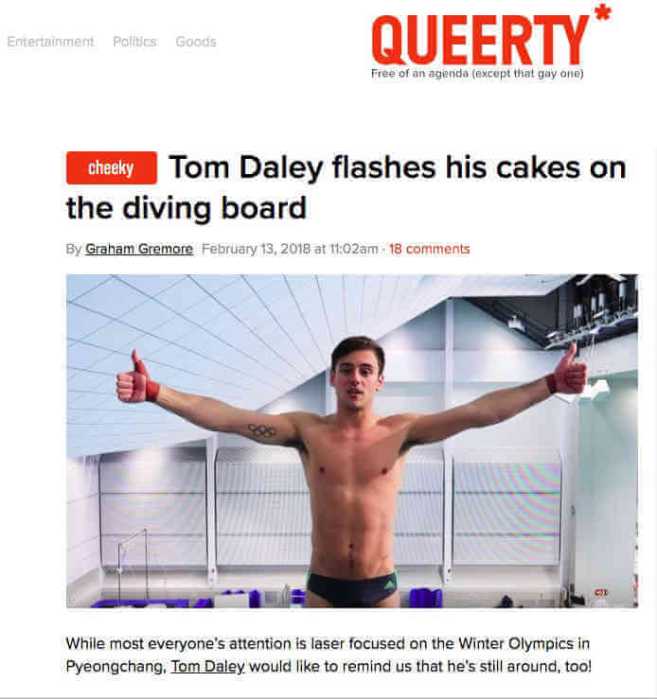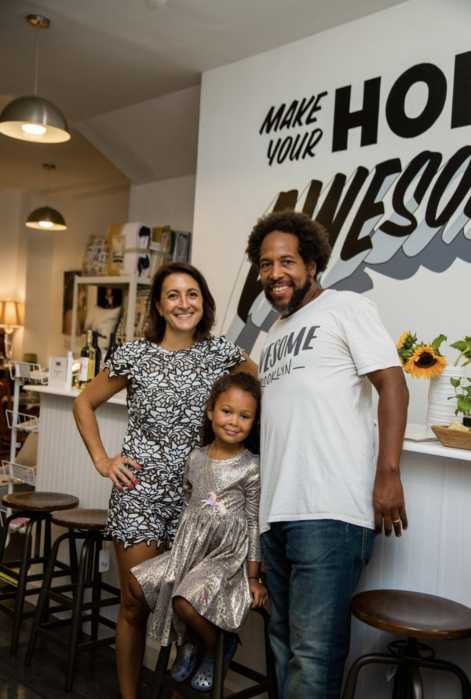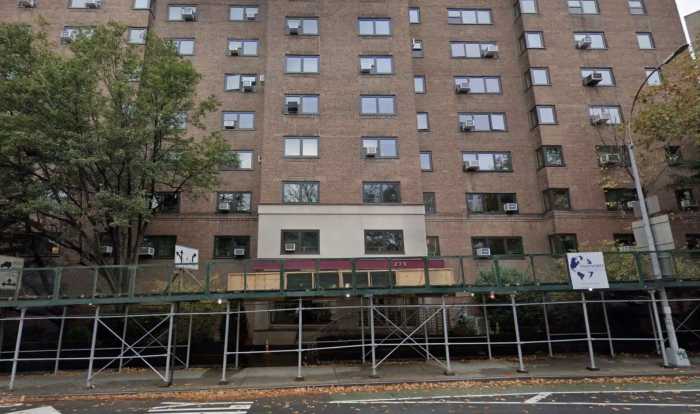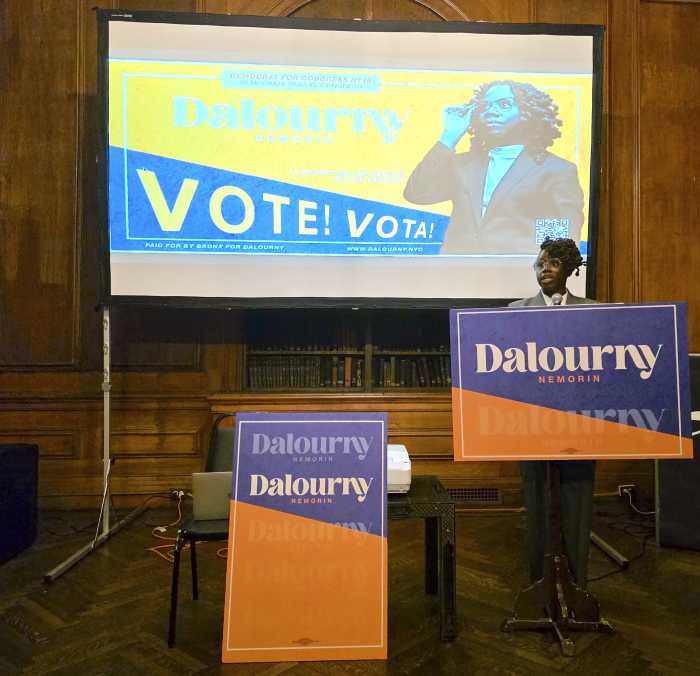There could not have been a more fitting choice of show-person to reopen Broadway than Bruce Springsteen. On June 26 night, the Boss took the stage at the St. James Theatre for opening night of a limited 31-show run of “Springsteen on Broadway.” It is the first Broadway performance to take place in the last 15 months since theaters shut down due to the COVID-19 outbreak.
“It’s great,” Springsteen told the full house jubilantly. “Unmasked, sitting next to each other!”
A maverick of American music, Springsteen, 71, brings the kind of symbolic capital that an occasion carrying such great expectations demands. To those viewing his performance as the start of a reboot for the economically wounded Broadway industry, Springsteen’s “working man” persona speaks volumes. For those attuned to the ongoing struggles for social justice, he performed “American Skin (41 Shots),” a song he wrote to remember and protest the 1999 police shooting of Amadou Diallo, an innocent, unarmed African immigrant in the Bronx. And to all of us hungering for the company of others, Springsteen’s explosive line from “Dancing in the Dark,” his biggest hit, “Man, I’m just tired and bored with myself!” is a salve.
“Bruce is a singular artist who is really able to speak directly to every one of us individually and collectively — that’s a magic trick — and also to the moment we are living in at every moment,” Jordan Roth, president of Jujamcyn Theatres, the producer behind “Springsteen on Broadway,” told NY1’s Frank DiLella at the opening.
In attendance was one of the highest-ranking out gay government officials, Secretary of Transportation Pete Buttigieg, accompanied by his husband Chasten Glezman Buttigieg.
As LGBTQ+ people, many of us found entryways to Springsteen’s music and/or persona that affirmed, or at least did not negate, our identities. Naomi Gordon-Loebl, a Brooklyn-based writer, has described how Springsteen enabled her to model her own female masculinity. “My relationship with Bruce started sometime in my early teens,” she wrote in a very clever article in the Nation in 2019. “In part, of course, it was the butchness. I was a 14-year-old disciple of a very particular brand of masculinity, and there seemed to be no better teacher than Bruce.”
Writing here in Gay City News in 2016, Michael Luongo reflected on his conflicting feelings of angst and attraction while editing his high school yearbook at Freehold High School, Springsteen’s alma mater, in New Jersey. The source of Luongo’s anxiety was Springsteen’s “Born in the U.S.A.” album cover, showing the Boss’s butt. Someone on Luongo’s editorial staff had the bright idea to riff on it in the yearbook with pics of the seats of their classmates’ pants.
Luongo explains: “Being a deeply closeted gay teenage boy at the time, I feared having to make decisions about the butts of my classmates. What if they thought I was too gung-ho about their butts, expressing way too much of an interest in what I was doing, or if I lingered too long over the images? Or if I blurted ahead of time which of the boys in class I already thought had great butts, because I’d been staring at them long before the ‘Born in the USA’ album jacket brought Bruce’s Freehold fanny to fame?”
Springsteen might have touched a nerve of a different kind among straight-identified guys. One Springsteen concert goer I recall seeing interviewed in the 1990s said when asked about a kiss the Boss had planted on Clarence Clemons, saxophonist for his E Street Band, “I probably wouldn’t kick Springsteen out of my bed, but as for the rest of the male species, nah.”
Nicholas Boston, Ph.D., is an associate professor of media studies at Lehman College of the City University of New York (CUNY), and author of “The Amorous Migrant: Race, Relationships and Resettlement” (Temple University Press).

